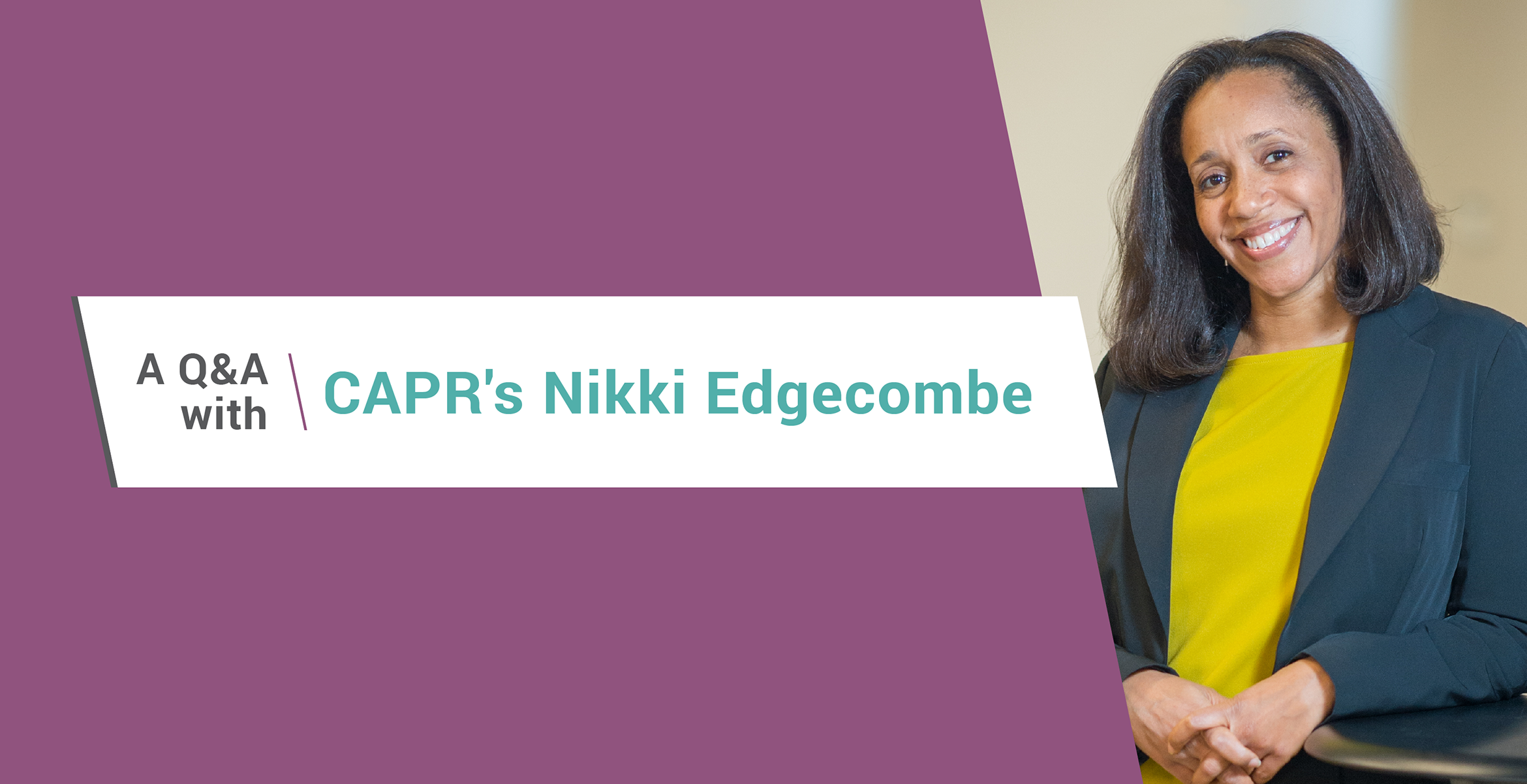The 2019 CAPR Conference: Bringing Together the Best of Developmental Education Research, Policy, and Practice

CAPR is wrapping up more than five years of research on developmental education reforms and the effectiveness of several reforms in particular. The center’s November conference in New York City will allow CAPR researchers and others in the field to reflect on what we have learned and what’s next. In this Q&A, Nikki Edgecombe, a senior research scholar at CCRC and the leader of CAPR, talks about CAPR’s contributions to developmental education reform and her vision for the conference.
How would you summarize where we are with dev ed research? What are some of the most pressing issues right now?
To use a baseball analogy, I’d say we’re in about the fourth or fifth inning. We have a much stronger understanding of what’s more effective than traditional prerequisite developmental courses. We’ve moved from institutional analyses to state and network analyses of reforms, to questions of scaling and integrating developmental education reforms with other institutional improvement efforts. In that regard, it’s beginning to feel like a game we’re winning. We have a lot of new knowledge and a lot of proof points nationally around reform work—but I don’t want us to lose our lead.
We need to keep focused and learn more about how to scale developmental education reforms within institutions, across institutions and states, or nationally. There’s much more to learn about which institutional practices and policies are working best for which students. And there’s more to learn about what kinds of professional learning opportunities faculty and staff need to support these improvement efforts.
What role has CAPR played in the dev ed research ecosystem?
CAPR has played a few important roles. One is simply at the core our mission as a research and development center: building the body of evidence and information for the field. That has been accomplished through our three core studies. It’s been supplemented by work from our partners at Cal State Davis and Vanderbilt and other friends in the field.
Perhaps more importantly, and the conference is indicative of this, CAPR now serves as a hub of sorts where researchers, policymakers, and practitioners come together to talk about how this evidence can be used to change policy and practice more effectively.
Lastly, we’ve worked really hard to broaden our audience and bring attention to reforms beyond those at the heart of the CAPR work. So on our website, you’ll see Shouping Hu’s blog post on the reform in Florida; Nancy Shapiro’s reflections about math pathways in Maryland; Olga Rodriguez’s discussion of assessment and placement in California; and numerous other partners, including policy people, researchers, and practitioners, who have shared their perspectives on developmental education reform nationally.
What are we hoping to accomplish with the CAPR conference?
The central goal of the conference is to set the stage for the next phase of reform and research—to keep moving the ball forward. We’re at a really important inflection point where, again, we have a better understanding of what works and the size of those effects—that is, how much something is likely to affect graduation or other outcome metrics that we care about—but we have a lot to learn about things like scale, both in terms of depth and breadth. We have a lot to learn about how we can tailor, direct, or shape existing reforms to support different student populations. We have a lot to learn about how to ensure access to reform is equitable. And we have a lot to learn and document around the ways in which institutions can better support those charged with implementing this work, whether they’re in the advising office or the classroom. Last but not least, we’re trying to work with the field in thinking about where developmental education reform fits within broader institutional improvement efforts.
Who do you expect to participate in the conference?
We are expecting a wide-ranging, diverse audience that includes practitioners, policymakers, students, researchers, advocates, and foundation staff, among others, from around the country. Alongside developmental educators, institutional and system leaders, academic and nonacademic support staff, and the students whose lives are touched by reforms, we hope to attract a next generation of researchers trained in a variety of disciplines and methodological approaches who will bring new perspectives, experiences, and energy to this space.
I’m inspired every day by the friends of CAPR, CCRC, and MDRC who contact me to express their interest in and excitement about the conference. Even more meaningful to me are the practitioners from colleges all over the country who reach out to tell me about the work they’re doing on the front lines of developmental education reform. I want to make sure practitioners like them are with us in New York City in November, sharing their successes and challenges.
What do you want the field to come away with?
I’d like the field to come away with that new vision of reform and research that needs to happen in order for us to continue to drive better student outcomes. And I want attendees to come away with new enthusiasm and connections across the diversity of individuals who are committed to student success.
